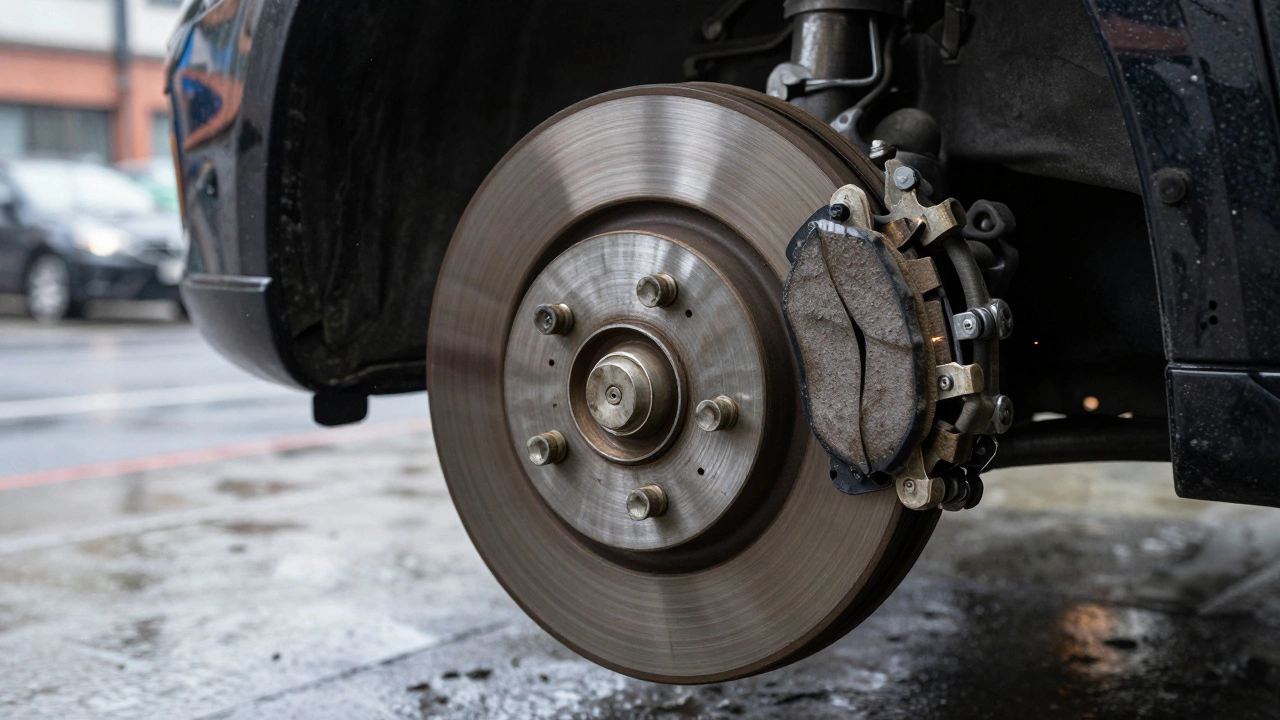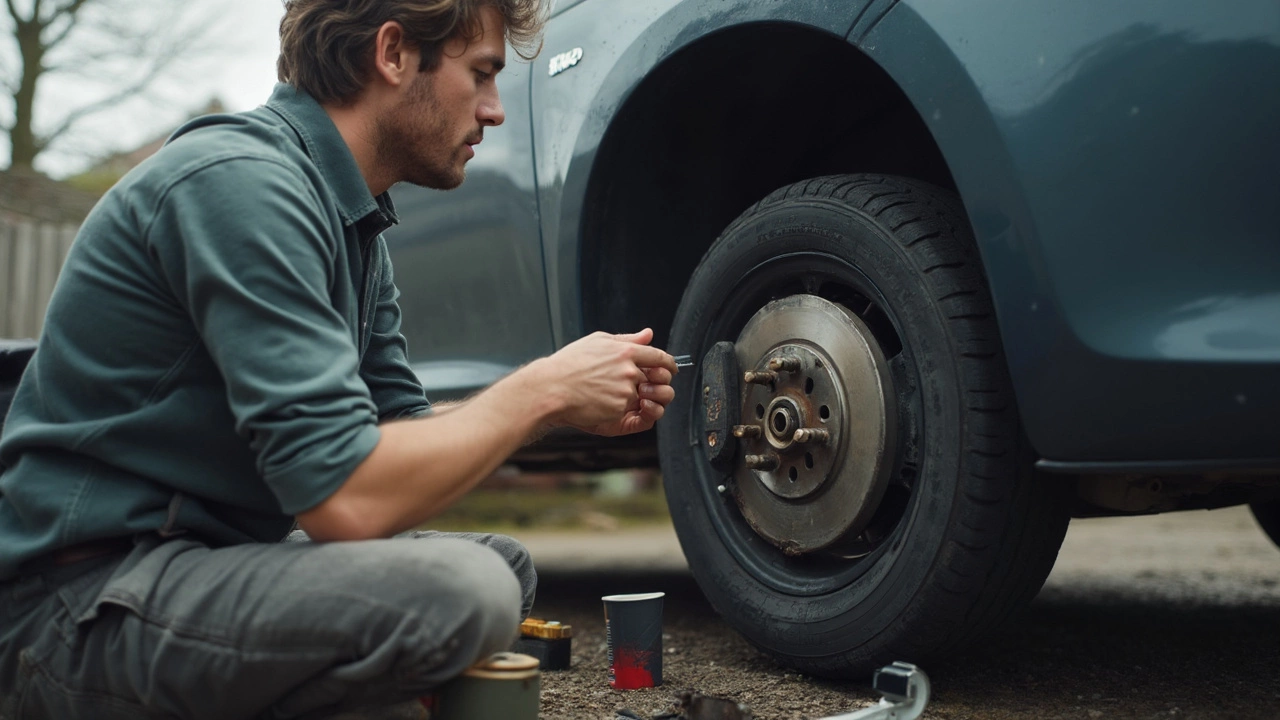Rear Brakes: When to Replace Pads, Rotors, and What You Need to Know
When it comes to stopping your car safely, rear brakes, the braking system at the back of the vehicle that works alongside the front to slow or stop the car. Also known as rear brake assembly, they handle up to 30% of your car’s stopping power—enough to make a serious difference if they fail. Most people focus on the front brakes because they do more work, but ignoring the rear ones is like driving with one hand on the wheel. If your rear brakes are worn, your car won’t stop straight, your stopping distance grows, and you risk locking up the rear wheels on wet roads.
Behind every set of rear brake pads, the friction material that presses against the rotor to create stopping force is a brake rotor, the metal disc that rotates with the wheel and gets gripped by the pads. These two parts wear together, but not always at the same rate. Some drivers replace pads every 30,000 miles and never touch the rotors—until the car starts shaking when braking. Others get lucky and get 80,000 miles out of both. It depends on how you drive, where you live, and whether you’ve been ignoring the squeaks and vibrations.
What really kills rear brakes isn’t age—it’s neglect. If you wait until the metal backing plate grinds into the rotor, you’re not just replacing pads. You’re replacing rotors, calipers, maybe even brake lines. And that’s not cheap. A simple pad swap costs under £100. A full rear brake job after ignoring the signs? Easily £400 or more. The difference? Paying attention.
You don’t need a garage to spot trouble. Listen for high-pitched squealing—especially when you’re slowing down gently. That’s the wear indicator rubbing. Feel for a soft pedal, or if your car pulls to one side when braking. Check your brake fluid level—if it’s dropping fast, there’s a leak. And if your handbrake feels loose or doesn’t hold on a hill, your rear brakes are already failing.
This collection of guides gives you the real talk on rear brakes. You’ll find out when you can get away with just replacing pads, when rotors must go too, and how to check them yourself without special tools. We cover what UK drivers actually see on the road, what mechanics won’t tell you unless you ask, and how to avoid being upsold on parts you don’t need. Whether you’re a DIYer or just want to know what to look for at your next service, these posts cut through the noise.

How to Tell If Your Front or Rear Brakes Are Bad
Learn how to tell if your front or rear brake pads are worn out by listening for noises, feeling vibrations, and checking pad thickness. Spot the signs early to avoid costly repairs and stay safe on UK roads.
February 23 2026
Which Brakes Wear Out First? What You Need to Know About Brake Pads
Ever wondered which brakes give up first, the front or the rear? This article breaks it down with simple facts and real-world examples. You'll learn why front brake pads usually wear out faster, what driving habits play a part, and how to spot warning signs. Get handy tips to make your brakes last longer and avoid surprise repairs. Perfect for anyone who owns a car or plans to.
April 25 2025